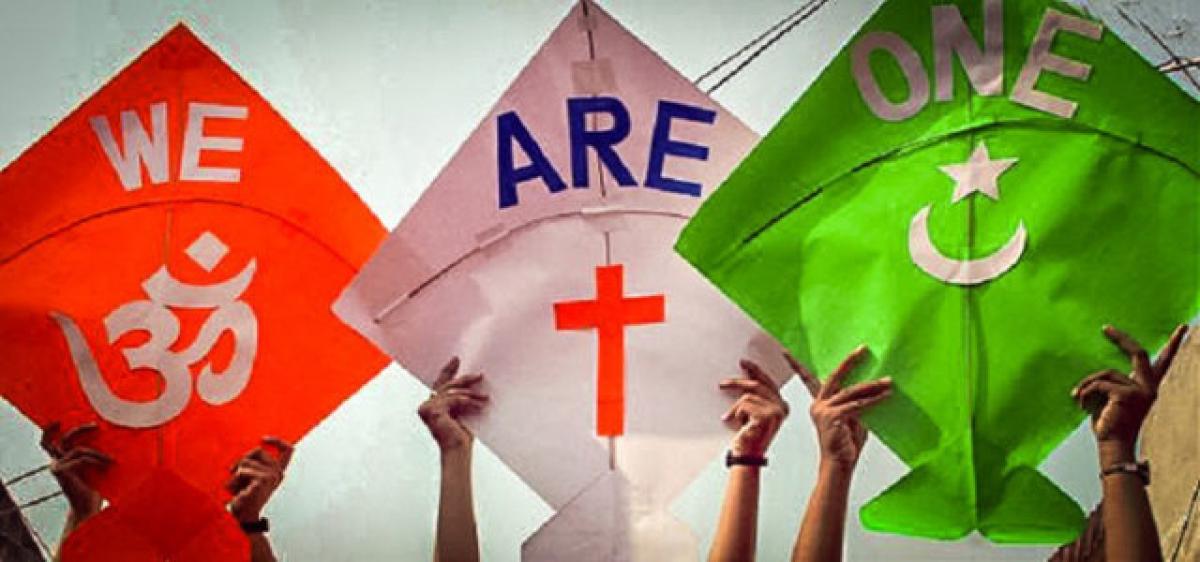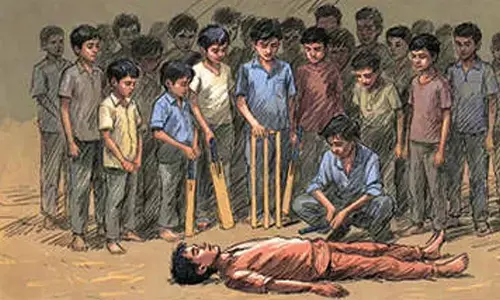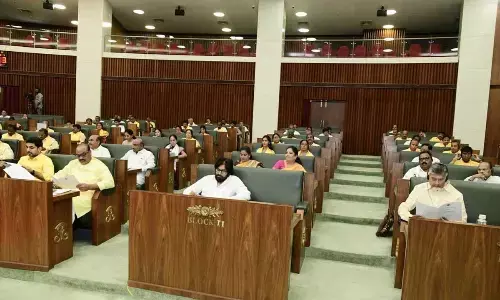Essentiality of Uniform Civil Code

“The State shall endeavour to secure for the citizens a uniform civil code throughout the territory of India,” says Article 44 in Chapter IV in the Directive Principles of State Policy.
“The State shall endeavour to secure for the citizens a uniform civil code throughout the territory of India,” says Article 44 in Chapter IV in the Directive Principles of State Policy.
Scope and Object of Article 44 The object of this article is to propose a uniform personal law for the purpose of nation’s consolidation. While the Constitution guarantees freedom of conscience and religion (Article 25), it seeks to divest religion from personal law and social relations and from laws governing inheritance, succession and marriage, just as it has been done even in Muslim countries like Turkey or Egypt.
What is personal law?
“Personal Law shall mean the Law that Governs the Person’s family matters” like marriage and divorce, infants and minors, adoption, wills, intestates and successions, joint family, and partition.
Need for a Uniform
Civil Code
The object behind the Article 44 is to affect an integration of India by bringing all communities on the common platform and matters which are at present governed by diverse personal laws.
If you look at the countries in Europe which have a civil code, everyone who has gone there from any part of the world and every minority has to submit to the civil code.
It is not felt to be tyrannical to the minority. The point, however, is whether we are going to consolidate and unify our personal law in such a way that the whole country may in course of time be unified and secular. We want to diverse religion from personal law.
Dr Tahir Mahmood in his book on “Muslim Personal Law” (1977 edition, pages 200-02) has made a powerful plea for framing a Uniform Civil Code (UCC) for all the citizens of India.
He says, “in pursuance of the goal to secularism, the state must stop administering religion-based personal laws” and made an appeal to the Muslim community, thus, “Instead of wasting their energies exerting theological and political pressure, and “in order to secure an immunity for their traditional Personal Law on the State’s Legislative Jurisdiction, the Muslim will do well to begin exploring and demonstrating how the true Islamic laws, purged of their own time-worn and anachronistic interpretations, can enrich the Common Civil Code in India.”
Along with this appeal, the author had made an earnest attempt to trace the history of codification and development of the laws in the major countries of the Muslim World (Algerian Family Court, Egyptian Law, Syria, Tunisia, Turkey, etc.).
Soon after the government gave a direction to the Law Commission, seeking report on the Uniform Civil Code, many organisations and political parties and individuals either gave their opinions in favour of or against the UCC.
It is so rationale that it makes differences between “Ibadat” (Right to worship) and Muamala (Other affairs), and that there is no conflict between the Constitution and the Quran on this issue.
If we go through the opinion made by Prof Tahir Mahmood as mentioned Supra and the Quote from Chief Justice Chagla, an eminent Muslim Judge, in his article in 1973 “Plea for Uniform Civil Code”: “that (Article 44) is mandatory provision binding the Govt.
and it is incumbent upon it is to give effect to the Provision ---- the Constitution was enacted for the whole country, it is binding for the whole country and every section and community must accept its Provisions and its Directives…” the Important and crucial question always arises whether the UCC is desirable until the Muslims themselves come forward.
Apart from the aforementioned clear clarification made by Prof Tahir Mahmood, it is further clarified as under:
“None of the directives in Part IV of the Constitution lay down that they can be implemented only if its opponents consent.”
When we refer to the changes by way of reforms in all the Muslim States i.e., Egypt, Jordon, Morocco, Pakistan, Syria, Tunisia, and Turkey, etc., where no question of Hindu dominance ever aroused, in the words of Allama Iqbal, “the question which is likely to confront Muslim countries in near future is whether the Law of Islam is Capable of Evolution -- question which will require great intellectual efforts, and is sure to be answered in the affirmative.”
At this stage, I feel that it is very relevant to refer to the Article 51A of Chapter IV (Fundamental Duties) by the 1976 Amendment that it has been elaborated by substitution of expression “Unity and Integrity of the Nation.”
Whenever the Muslim women face problems, they are approaching the competent court under the law of the land, instead of religions institutions.
The National Commission for Women (NCW), contending before the Supreme Court, stated that, “Triple Talaq and Polygamy are unconstitutional and had ruined the lives of Women and Children.”
National Federation for Indian Women (NFIW), demanding gender justice and equality, demanded that the UCC must cover all religions, focus, on gender equality.
All the facts and present circumstances will lead one to definite conclusion: “It has become essential in this Globalization era to move forward for UCC, keeping in view of the Preamble and Article 51A of the Constitution of India in respect of Article 44 of the Directive Principles of the State Policy which is also have to be treated as a Fundamental Right on the basis of Honourable Supreme Courts.”
The landmark judgment dated 24.04.1973 in Kesavanand Bharati Vs State of Kerala (reported in AIR 1973 SC 1461) and other judgments including Shah Bano Case, John Vallamattom Case, Raghunath Rao case, etc., are very essential for proper implementation of socialist ideals and brotherhood among all the people of India which is the need of the day to strengthen the unity and integrity of the nation.
(Writer is a High Court advocate and president of Greater Hyderabad Society for Fast Justice. The article is written on the occasion of two-day National
Convention-2017 which is concluding on February 26 at PGRR College for Distance Education, Osmania University Campus,
Hyderabad)








